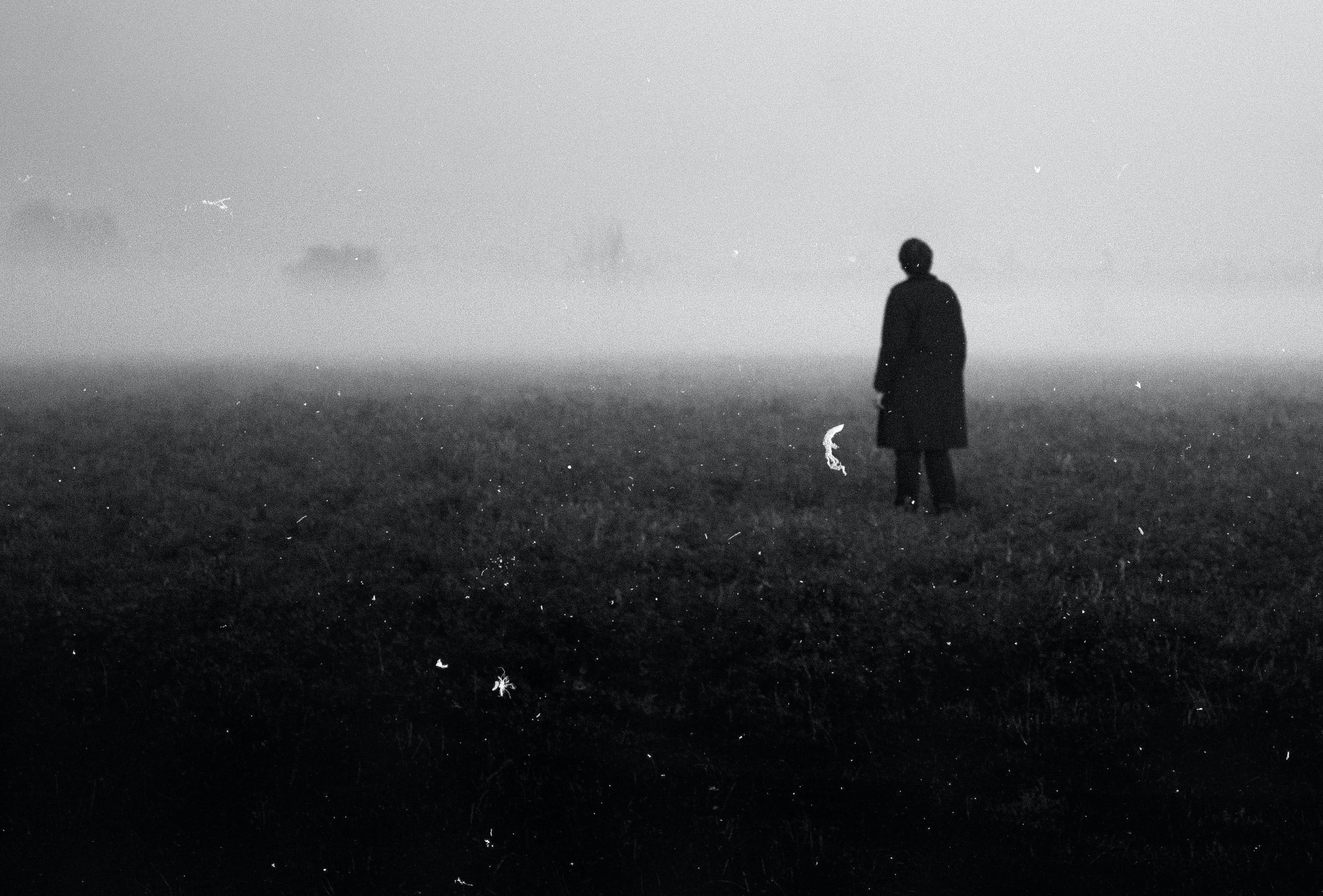Interviews
Speed and Crisis, with Daniel Magariel
The author of ‘One of the Boys’ on a father’s addiction, revision and a whirlwind literary debut

In his debut novel One of the Boys, Daniel Magariel uses his personal history to write from the perspective of a young boy who starts a new life with his brother and father. Everything is perfect in the eyes of the preteen, but events slowly turn heartbreaking when the father’s addictions and violence begin to rise to the surface. The novel carries a lot of emotional weight in a brief space — less than 200 deeply-affecting pages.
Magariel honed his craft throughout the years in places ranging from cafes in northern Manhattan to the foothills of the Rockies, before he ended up at Syracuse’s MFA program studying under George Saunders. Raised in Kansas City, the now-Brooklynite called to talk about how his childhood influenced One of the Boys, crafting the voice of a preteen, his obsessive editing habits, and more.
Adam Vitcavage: Since you’re a debut author, I feel like we should start with some background so readers get to know you. How and why did you become a writer?
Daniel Magariel: Like most writer’s, it was almost a compulsion. At some point, I started to take myself seriously. I was a senior at Columbia and I was graduating soon — this happened when I was in my final year at Syracuse as well — and there was this “oh shit, I’m about to leave college unemployed” moment. I seem to do my best writing under circumstances like that.
I had just made the leap into writing fiction [during my senior year of undergrad]. I had been messing with non-fiction. I thought about doing long form journalism, but during that final year at Columbia, I realized I had been really holding back on what I truly wanted to work on: a novel.
I used to frequent this little cafe on 111th and Amsterdam called The Hungarian Pastry Shop. While there, attempting to put down the first few words of fiction I’d written since a story about dragons in the first grade, I came to learn that this cafe was a workplace for the likes of Nathan Englander, Rivka Galchen, and Julie Otsuka. To be honest, I knew very little about contemporary fiction at that time, and I had no idea who they were until I googled them, but once I had, I started looking for them daily, studying their routines, watching them just sit and work. Beyond my amazement at how long they could hold it in — their pee, I mean — I was enthralled by how they showed up and stayed at it, for several hours nearly every day. There was nothing glamorous about this place — no outlets, dim light, burned coffee, tiny tables — and yet I learned something so critical by watching brilliant writers do the modest work of sitting and working. That place was my moveable feast for the several years between undergraduate and graduate.
At 23-years-old, I moved to Colorado and got a job working the night shift at a treatment center for at-risk youth. It was a lockdown facility in the foothills of the Rockies with coyotes howling at night while these kids slept. I would try to stay up and write. A lot of what I wrote was just a bad, horrible version of what I have now.
Vitcavage: From there you started to apply to MFA programs?
Magariel: From there I started to apply to MFA programs. I actually moved back to New York for a year after living in Colorado for a year. I became a caterer and worked on MFA application essays. I got into Syracuse and moved to upstate New York.
Vitcavage: Syracuse is producing a lot of great fiction lately. Was your novel a product of that program?
Magariel: I walked in with two chapters of this book. They were my application pages: chapters five and six. I wrote them as short stories. I set it aside for two years and worked on other stuff, including a lot of short stories and another novel that I still won’t look at.
In the third year at Syracuse, the six fiction writers get to work with George Saunders a lot more and I decided to jump back into this novel. He wasn’t in love with what I was working on so he brought up how my application stories had energy. I wrote another story and started working on them sequentially.
He eventually became my thesis advisor and was very supportive of the energy of the project. The novel looks much different now than it did back then. Three years later I had a completed book. A very short book.
Vitcavage: I did want to talk about the length, but first I want to make sure I know about the genesis of the book. It’s very emotional and seems very personal. It started as short stories, but were they ever meant to be linked?
Magariel: Yeah, they were meant to be linked. As for the genesis…I don’t think I’m fooling anybody. It’s clear that to write a book that so intimately portrays so few characters in a very private environment such as addiction with parents the writer needs to connect with it. My father was an addict. My sister, my brother, and I watched — you know, I don’t even remember when we realized that he was using drugs. It was just sort of a part of our lives until it was, “Oh shit, that’s why he acts the way he does and is weird sometimes.”
That awakening to the weird things happening behind the closed door and all the strange signs was the genesis of the book. Then my job as a fiction writer is curating, organizing, cutting, exaggerating, and escalating fact.
Vitcavage: Why keep the boys nameless?
Magariel: It’s funny. There are these happy accidents that people have while working with material for so long. Your instinct to do something is different than the meaning it garners by the end. I heard people say there is this anonymity with the namelessness and it sort of makes it universal. The reality is that I feel awkward in fiction when I name people. Once I name people, it doesn’t feel real. The first few stories, I didn’t want to name them. It worked, so I kept doing it.
Vitcavage: It’s funny, I noted while reading it: “No character names — universal?” and it seems like everybody just wants to attribute that to your book.
Magariel: Yeah, and I think it does. It works. I didn’t realize until I wrote a few chapters.
Vitcavage: You mentioned length earlier. It’s been a trend for these emotionally draining, heavy stories that are 700 pages. A recent favorite of mine was Hanya Yanagihara’ A Little Life, which is a doorstopper and your book can literally slide under the crack of my door. What was it about keeping this story short?
Magariel: It was voice. I started writing these chapters and velocity was the most compelling and stylistic choice. I heard, and I don’t necessarily believe this, but there are these doorstoppers and readers are losing their attention spans. Even though I don’t believe that, I thought, what if it was true, what if I wrote a book that was so fast that readers actually wanted to slow down.
The length was a product of the style. I wanted it to be longer, but it wouldn’t get any longer. I also realized what better way would there be to describe what it’s like for a twelve year-old to be under the spell of a father who keeps setting fires everywhere. There is no time for reflection. No time to stop and take in what’s going on. You’re constantly forced into a crisis.
I needed to find a way to do that and my solution was speed. Maybe I was able to get the reader to understand how frantic the life of the narrator is.
Vitcavage: How did you tap into a preteen boy’s perspective so that his voice fit the literary style?
Magariel: I upped his language abilities and his ability to reflect at times. I also made the language so clipped and even at times repetitive. My German translator said this was a deceptively easy book to translate, but it’s a difficult style to emulate. Readability doesn’t always mean a lack of style or a lack of intent in the language.
I needed to figure out the twelve year-old narrator. You try to imagine what life was like at twelve. What it would be like to experience these things. You put him in a room and you have these dynamics. There’s an older brother, so of course a boy that age would want to be pals with his older brother. Of course he’ll want to worship his father. These things are obvious.
Then there was the speed. The sentences become even shorter and condensed. They had to become more packed with what was essential for that moment in time. I do think the boy’s language and diction is upped.
Vitcavage: Going back to Syracuse, when you were working with George Saunders, what was that process like? I think a lot of people who read this kind of interview were like you: younger writers who want to take this seriously. Can you sort of walk me through what your MFA experience was like?
Magariel: I had an insane routine. I’d wake up at 6am and go to the library. I’d write for an hour. An hour doesn’t sound like a lot, but that’s my rule. When I sit down I don’t want four hours or six hours. After that hour I go to the gym immediately after. I’d swim laps for an hour and then go back to the library for an hour.
Vitcavage: Was the gym a place to reflect on what you wrote or just clear your head?
Magariel: I’m reflecting the whole time. I’m in a no-mind mode where I can do repetitive activities. Like walking two miles anywhere. As long as my mind automatically wanders to the work. The downtime is an essential part of my writing. The more I can build it into my schedule and routine, the better the work. I discovered this a lot that year. I was looking for these intense bursts where I’d get maybe 50 words, but they were 50 solid words. I could walk away from them and think about what the next 50 words would be.
One of the best parts of that process was that I would work my way slowly and methodically through a chapter and by the time I was done with the draft it was pretty solid.
Then to get the writer’s saint of the 21st century — i.e. George Saunders — to look over a draft was amazing. There was something about writing those four first chapters for him that helped. He was my audience, there was no one else. So knowing that, I obviously I wanted to impress him, I wanted to give him my absolute best work so he could give me the best feedback possible.
There was also that urgency, like in my undergrad — after my MFA was over, I wouldn’t have a job, which meant I wouldn’t have the time to write.
Vitcavage: After writing and clearing your head, what is your editing or reflection process like?
Magariel: At night, I like to have a stiff drink and read over everything I wrote and line edit. I edit obsessively. I write for an hour burst here and there, then at night I take a pen and just mark it up. I continue to mark up those pages until there are no pen marks. It’s likely to take six months of going back to the old stuff. Once there are no marks, I say okay and move on.
Vitcavage: What are you editing on those nights? For voice, for grammar, for anything in between?
Magariel: There are different stages. Grammar is one of those things writers overlook. I mean, in an MFA no one is teaching classes about grammar. When you get close to publication you realize you have to have a grammar style, too, and it has to be consistent. It’s like: obviously. Then you question yourself. Do I always need a comma after an adverbial clause that introduces a sentence? Do I need a comma after a terminal too or either? Do I need a comma following a main clause when I have a subordinate clause at the end of the sentence? Should I use italics instead of quotations when referring to something someone says?
It all seems intuitive and obvious, but when you’re going through the work you realize there are some inconsistencies with grammar. That was my favorite part about publishing this book. I did a full grammar reboot when the copy edits came back.
But when I’m editing, I’m also looking for anything I can cut. The best feeling in the world is when I write a beautiful paragraph and I get to cut it because the page or the scene or the chapter functions at a higher level without it. Even if it functions at the same level, I cut it. I just look for whatever in the completed work is absolutely essential. If there is any doubt, it’s not staying.
I print out my pages every night and take a pen to it. Whatever edits I made is how I start the next day.
Vitcavage: So, you graduate then you make all of the edits, and sell the book. It obviously happens overnight.
Magariel: Yeah, it happens overnight. [laughs] I spent two years working before I sold the book. I mean, let’s see: the book was not sold this time last year. [Literary agent] Bill Clegg had signed me around February 18 of last year. It all happened really quickly. I wanted to turn the book in as complete as possible. I brought it to a place where I didn’t think I could take it any further. Bill saw it and gave me some notes. Then Nan Graham and Daniel Loedel brought it at Scribner and they gave me notes. Yeah, the book sold in April of last year.
Vitcavage: Then this basically did happen overnight, which is never the case.
Magariel: Seriously. The book will be out less than a year after it was sold.
Vitcavage: What are you working on next?
Magariel: A novel. A longer one this time. My wife grew up in a commercial fishing town and I’ve gotten to know a lot of the fisherman. I’ve spent a lot of time down there with them and have plans to spend more time. I’m trying to push myself to a place where I’m totally uncomfortable. The first chapter starts off with a woman reflecting on the death of her child. I’m not that.









